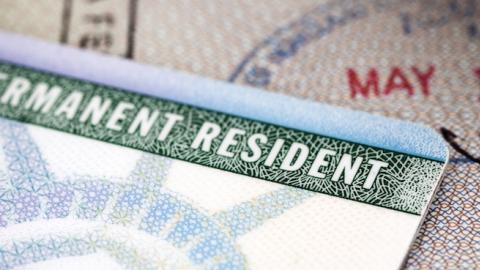For the Washington Post editorial board, nothing about Donald Trump's immigration positions—his determination to enforce United States immigration laws, his focus on American workers, his commitment to stopping President Obama's unconstitutional executive actions—makes much sense. (Amusingly, the Post calls such positions "un-American.") But one thing that really seems to confound the paper is why Trump would choose to prioritize the deportations of those who overstay their visas.
The Post writes, "Just why Mr. Trump would prioritize visa-overstayers for deportation, and not those who entered the country illegally in the first place, is unexplained. Logic is hardly the point of his policy." (The actual point of his policy, as the Post helpfully explains with both reasonableness and nuance, is to throw "red meat to the xenophobes in [the GOP] base" and "whip his supporters into a froth of nativist agitation" by launching "a crusade of mass deportations" while "playing on hatred.")
In truth, Trump's immigration proposals are quite logical and sensible. What's more, his emphasis on those who overstay their visas is subtly shrewd. So long as the discussion is focused on those who came across the border illegally, the point at which the laws were broken was at the border, and the clear fix is to secure the border going forward (which almost all politicians say they are committed to doing but few actually are). One can plausibly (or almost plausibly) claim to be for enforcing the law—by securing the border—without being in favor of deporting those who are already here.
By shifting the discussion to visa-overstays, however, Trump and his team are making the question of interior law enforcement unavoidable. When the discussion turns to those who overstay their visas, liberals and libertarians either have to admit that interior law enforcement is necessary, or else they have to admit that they view the expiration dates on visas as mere recommendations—which means admitting that these visas are really lifelong passes.
After all, such visa-holders came here legally. The problem of their having overstayed their visas can't be fixed by securing the border. Interior law enforcement is required as well.
Emphasizing those who overstayed their visas highlights the need for interior law enforcement in a way—or to a degree—that emphasizing those who came here illegally does not. In doing so, it puts the open-borders crowd on the defensive—and the Post isn't pleased about that.















